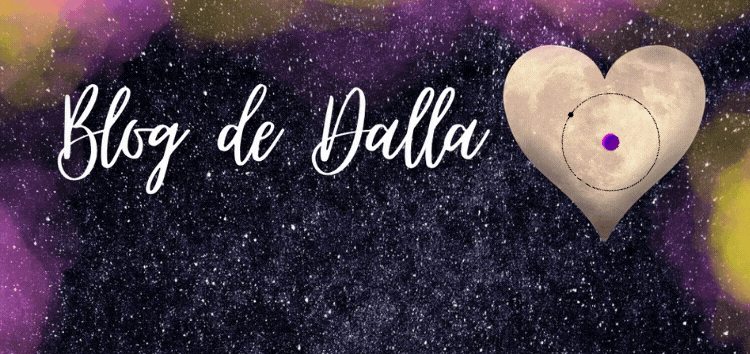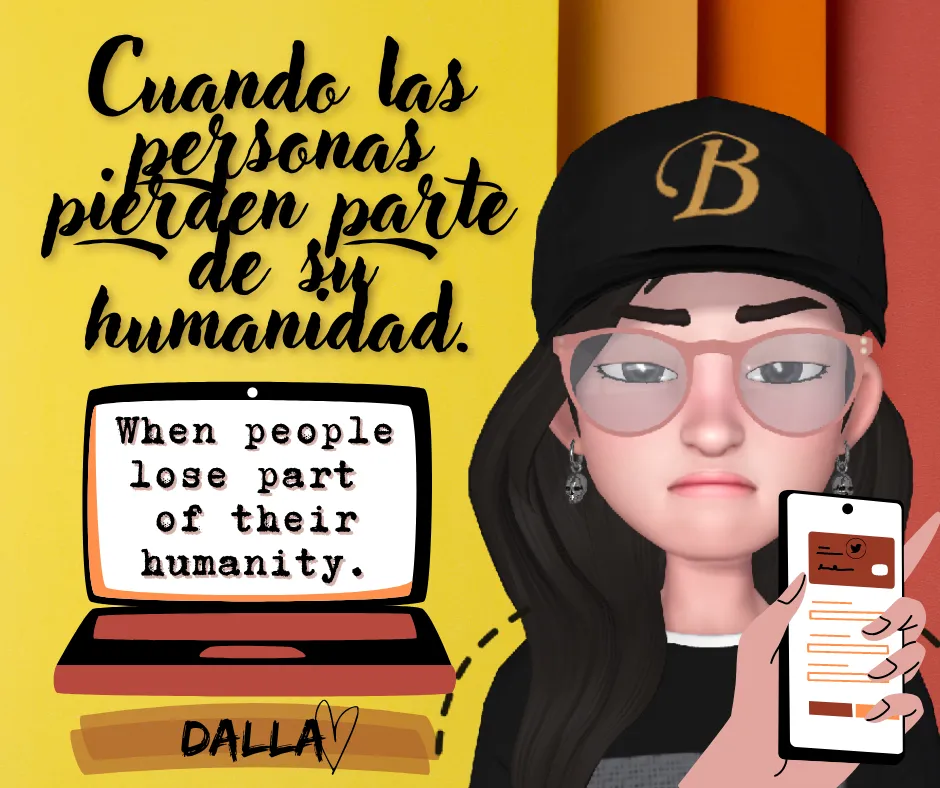

El fin de semana recorriendo por las Redes Sociales y leyendo noticias por ahí, me puse a reflexionar sobre algo que ya he pensado con anterioridad, pero siempre trato de dejarlo pasar porque el solo pensamiento me perturba y es que ¿Será que los seres humanos nos estamos volviendo menos humanos?
Y no me refiero a humanidad como ese adjetivo calificativo que tenemos por poseer características anatómicas comunes con otros seres que viven en este planeta, me refiero a las características psicológicas que abarcan la palabra "Humanidad".
Tristemente parece que no todos los seres humanos tienen el mismo nivel de "humanidad" y eso está más que comprobado porque no necesitas ser un especialista en ninguna materia para darte cuenta de eso, sin embargo, algunos debemos ver esos desniveles con más frecuencia que otros.
Yo por ejemplo puedo decir que "casi" estoy acostumbrada a ver partes poco benevolentes de los "humanos", de hecho, creo que esa es una de las razones del por qué ni siquiera veo películas de terror y horror (recordando que hace poco no sabía qué película escoger para la competencia de moviesonhive) ¿qué sucede cuando ya has visto tanto de eso? Si eres una persona sana mentalmente solo quieres ver algo que te tranquilice o te haga pensar de una forma distinta a como llevas todo el día para tratar de mantener un equilibrio en ti.
Mucha gente de seguro puede juzgarte y decir cosas como: "Es una infantil o inmadura, por eso no quiere ver película de terror" sin siquiera estar cerca de la verdadera razón… Ok tampoco soy médico forense, no es como que veo asesinatos todos los días como ellos o algo así, pero he visto mucho de la mente humana enferma y eso muchas veces es aún peor que ver las imágenes en vivo y directo.
Hace un tiempo dejé de seguir gente específica en redes sociales, solo me enfoqué en ver cosas que me relajaran porque estaba muy agotada mentalmente, dejé de seguir canales de noticias, incluso a mis conocidos que viven cerca de mí, porque ellos también colocaban noticias del país que yo no quería ver.
El asunto es que con el tiempo me di cuenta de que ni siquiera era que no quería ver las noticias, lo que yo realmente no quería era leer los comentarios de la gente que escribían debajo de esas noticias, siempre tenía y tengo un pensamiento recurrente: ¿qué rayos pasa por la cabeza de esta persona para decir semejante cosa?
Over the weekend, going through the Social Networks and reading the news out there, I started to reflect on something that I have thought about before, but I always try to let it go because the thought alone disturbs me, and that is that are we human beings becoming less human?
And I am not referring to humanity as that qualifying adjective that we have for possessing common anatomical characteristics with other beings living on this planet, I am referring to the psychological characteristics that encompass the word "Humanity".
Sadly it seems that not all human beings have the same level of "humanity" and that is more than proven because you do not need to be a specialist in any subject to realize that, however, some of us must see those differences more frequently than others.
I for example can say that I'm "almost" used to see not very benevolent parts of "humans", in fact, I think that's one of the reasons why I don't even watch horror movies (remembering that recently I didn't know which movie to choose for the moviesonhive competition), what happens when you've already seen so much of that? If you're a mentally healthy person you just want to watch something that calms you down or makes you think in a different way than how you've been going all day to try to keep a balance in you.
A lot of people for sure can judge you and say things like, "She's childish or immature, that's why she doesn't want to watch horror movie" without even being close to the real reason... Ok I'm not a medical examiner either, it's not like I see murders everyday like them or anything, but I've seen a lot of the sick human mind and that many times is even worse than seeing the images live and direct.
A while ago I stopped following specific people on social networks, I only focused on watching things that would relax me because I was so mentally exhausted, I stopped following news channels, even my acquaintances that live near me, because they also posted news from the country that I didn't want to watch.
The thing is that with time I realized that it wasn't even that I didn't want to watch the news, what I really didn't want was to read the comments of the people who wrote under those news, I always had and still have a recurring thought: what the hell is going on in this person's head to say such a thing?

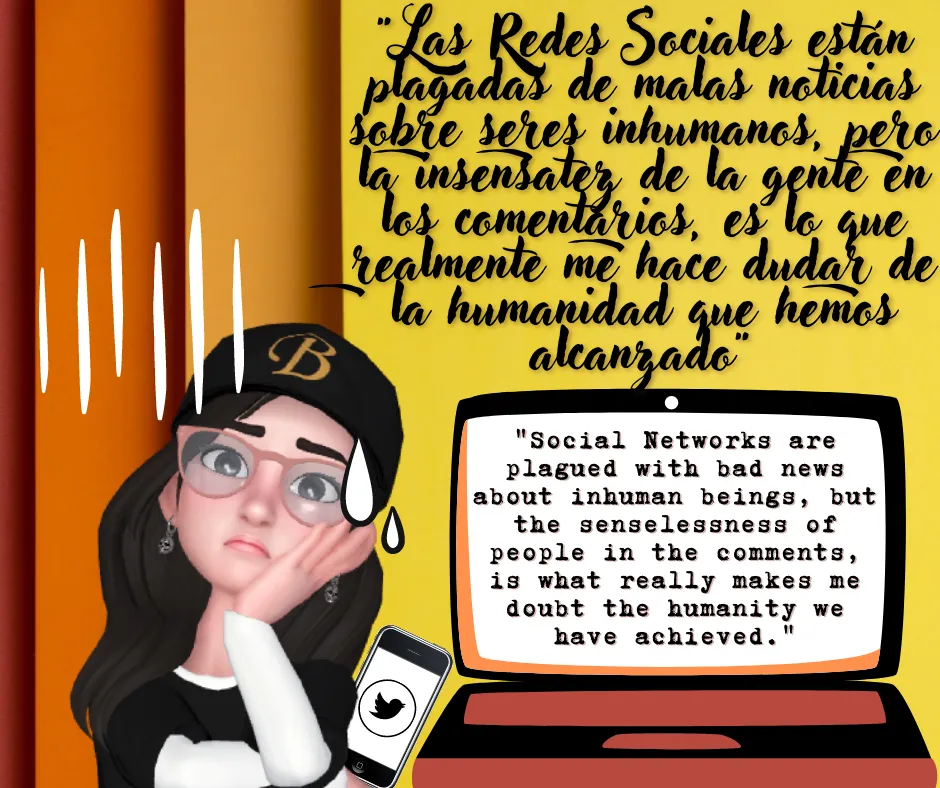

Y es que amigos, yo estoy acostumbrada a tratar personas con Enfermedades Mentales, sin embargo ¿qué pasa cuando es mayor la cantidad de personas que veo por ahí que parecieran tener problemas mentales que los que no lo son?
El enfermo mental es una persona con un problema, cuando llega a mi consulta generalmente él asumió que algo no está bien en él o entorno se lo hizo saber, necesita un trato especial, hay que hacerlo cambiar porque la enfermedad le hace daño a él y a ese entorno, ellos lo saben y buscan ayuda, así que ponemos en marcha las estrategias para eso.
Esos enfermos mentales, muchos, parecieran que han perdido parte de su humanidad, pero no es eso, es que tienen un problema, bien sea en su estructura cerebral, equilibrio neurohormonal, un problema emocional, etc, hay muchas razones por la cual puedan tener esa enfermedad y pueden parecer así, pero hay otros que no tienen nada de eso. Hay otros seres completamente "normales" y que, aun así, parecen menos seres humanos que el resto, incluso, que esos enfermos de los que les hablo.
Algo en mí se niega a creer que hay tantas personas con esa clase de pensamientos donde pareciera que demuestran que perdieron parte de su humanidad, por eso este fin de semana me pregunté; ¿será que esto es algo que ya forma parte de la normalidad de un ser humano?
Para ser un enfermo mental (que son los que anteriormente yo veía que tenían estos pensamientos) debes cubrir ciertas características y patrones que varían dependiendo de la enfermedad, pero si hay algo que es repetitivo en todas ellas, es que tengan signos y síntomas que afecten su vida o la de los demás.
Pero ¿qué pasa cuando muchas personas piensan de una forma tan inhumana y al final deja de afectarles su vida y la del entorno porque todos piensan igual y ya no podemos catalogarlos como enfermos mentales?
I am used to treating people with mental illnesses, but what happens when I see a greater number of people who seem to have mental problems than those who do not?
The mentally ill person is a person with a problem, when they come to my office they usually assume that something is not right with them or their environment has let them know, they need special treatment, they need to be made to change because the illness is hurting them and their environment, they know this and seek help, so we put strategies in place for this.
Those mentally ill, many of them, seem to have lost part of their humanity, but it is not that, it is that they have a problem, either in their brain structure, neurohormonal balance, an emotional problem, etc, there are many reasons why they may have that disease and may seem so, but there are others who do not have any of that. There are other beings who are completely "normal" and who, even so, seem less human beings than the rest, even than those sick people I am talking about.
Something in me refuses to believe that there are so many people with that kind of thoughts where they seem to show that they have lost part of their humanity, that is why this weekend I asked myself; could it be that this is something that is already part of the normality of a human being?
To be mentally ill (which are the ones that I previously saw that had these thoughts) you must cover certain characteristics and patterns that vary depending on the disease, but if there is something that is repetitive in all of them, is that they have signs and symptoms that affect their lives or the lives of others.
But what happens when many people think in such an inhuman way and in the end it stops affecting their lives and those around them because they all think the same way and we can no longer label them as mentally ill?

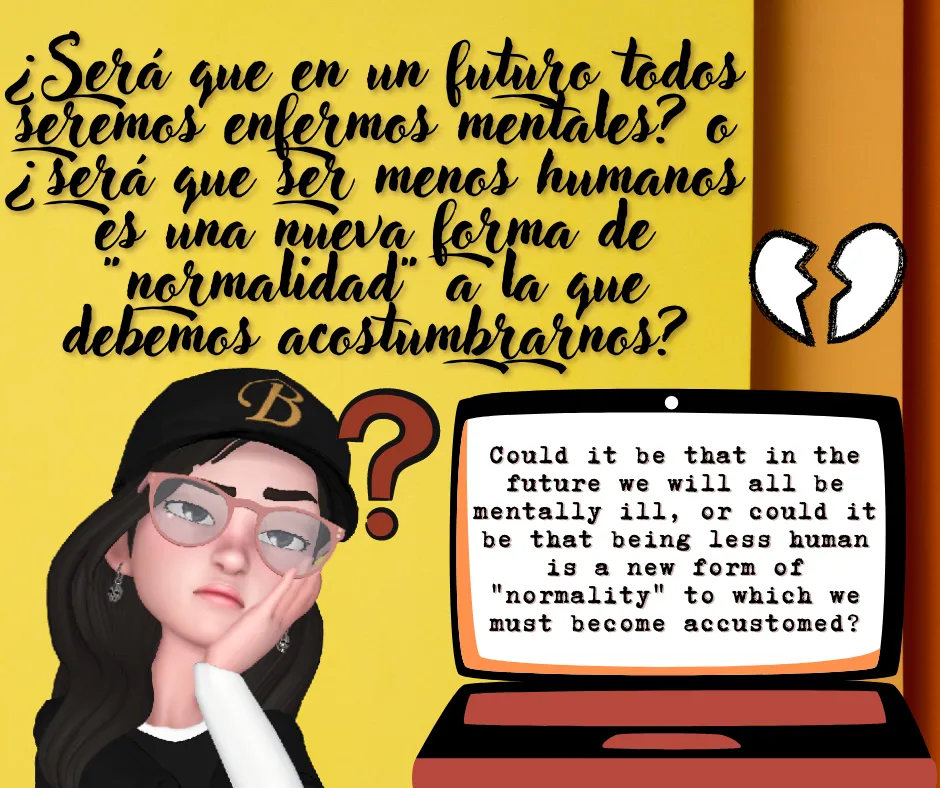

Esa pregunta tan rara es la que me puso a reflexionar el fin de semana cuando revisé las Redes Sociales y vi comentarios tan absurdos sobre una noticia completamente horrorosa que me generó hasta náuseas y excesiva ansiedad durante el día por lo horrible que se vio.
Al leer esos comentarios en esas noticias, tan faltos de empatía, comprensión, tolerancia y sobre todo sensibilidad de esa forma tan repetitiva, me hizo reflexionar sobre el hecho de que, es como si ya el ser humano que yo aprendí a tratar mentalmente estuviera dejando de existir.
Ahora mismo estoy llegando a pensar que es posible que esto forme parte de la evolución del ser humano y lo que viene a partir de ahora es eso "una pérdida parcial de la humanidad" ¿tiene sentido eso? Antes creía que no, pero ahora mismo sí lo creo.
¿Qué nos hace humanos? Además de las características evidentes morfológicas y sociales, el tener humanidad significa tener entendimiento hacia esos otros seres que forman parte de tu mismo grupo, debemos tratar de entender cómo se siente esa persona antes de emitir juicios y opiniones, ser capaces de desarrollar relaciones afectivas o por lo menos entenderlas aun cuando quieras estar solo toda tu vida, entender que todos somos diferentes, pero que somos todos parte de esta raza que llamamos "humanos", y así puedo seguir describiendo otras muchas características más sobre lo que significa "humanidad" en el sentido amplio de la palabra.
Por supuesto esto no es una verdad absoluta, lo que les estoy diciendo es algo muy subjetivo y variable en los seres humanos, pero de forma general es lo que más o menos "debería" ser, sin embargo, justamente todo eso que estoy diciendo es lo que veo más frecuente cada día en el ser humano y me genera mucha contradicción.
Yo no sé si ustedes están al tanto, probablemente no, pero para nosotros establecer si una persona tiene una Enfermedad Mental usamos por norma general un Manual de la Sociedad Americana de Psiquiatría, se llama DSM (Diagnostic and Statistical Manual of Mental Disorders) por sus siglas en inglés, este manual recoge un compendio de criterios que después de cientos de estudios y de años de investigación sobre la mente humana, nos permiten establecer cuando una persona puede o no tener una Enfermedad Mental.
That very strange question is what got me thinking over the weekend when I checked the Social Networks and saw such absurd comments about a completely horrifying news that even made me nauseous and excessively anxious during the day because of how horrible it looked.
Reading those comments on those news, so lacking in empathy, understanding, tolerance and above all sensitivity in that repetitive way, made me reflect on the fact that, it is as if already the human being that I learned to deal with mentally is ceasing to exist.
Right now I am coming to think that it is possible that this is part of the evolution of the human being and what is coming from now on is that "a partial loss of humanity", does that make sense? I used to think not, but right now I do.
What makes us human? Besides the obvious morphological and social characteristics, having humanity means having understanding towards those other beings that are part of your same group, we should try to understand how that person feels before making judgments and opinions, be able to develop affective relationships or at least understand them even if you want to be alone all your life, understand that we are all different, but we are all part of this race we call "humans", and so I can go on describing many other more characteristics about what "humanity" means in the broad sense of the word.
Of course this is not an absolute truth, what I am telling you is something very subjective and variable in human beings, but in a general way it is what more or less "should" be, however, precisely all that I am saying is what I see more frequent every day in human beings and it generates a lot of contradiction in me.
I do not know if you are aware, probably not, but for us to establish if a person has a Mental Illness we generally use a Manual of the American Psychiatric Society, it is called DSM (Diagnostic and Statistical Manual of Mental Disorders), this manual contains a compendium of criteria that after hundreds of studies and years of research on the human mind, allow us to establish when a person may or may not have a Mental Illness.

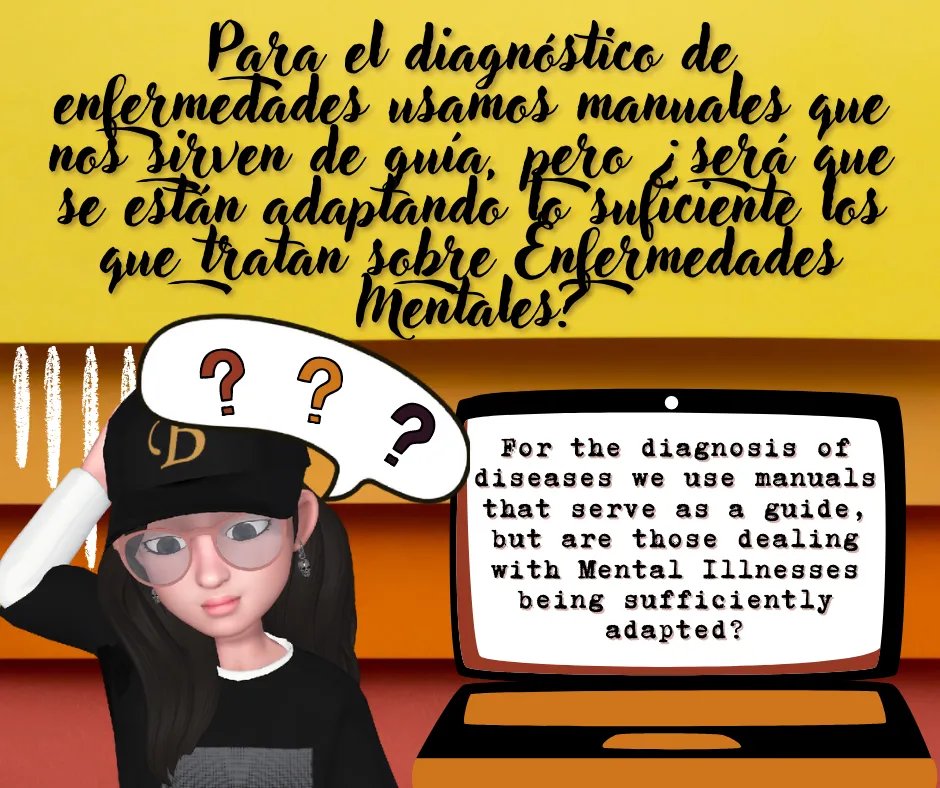

Por supuesto no usamos solo el manual para diagnosticar, nos basamos también en la evaluación clínica y mental que le hacemos a una persona, pero como podrán saber intentar estudiar la mente humana es demasiado complejo, así que estos especialistas en la materia se dieron a la tarea de crear este compendio para ayudarnos a todos los que nos dedicamos a las ciencias de la salud a orientarnos en los probables diagnósticos de enfermedades mentales.
El asunto es que si leen el manual… que no quiero que lo hagan ¡por favor! solo hablo de esta forma para que me entiendan, porque se van a empezar a diagnosticar enfermedades y no tienen la suficiente preparación para eso, por lo que pueden llegar a estresarse de forma innecesaria ¡ojo con esto!... Aclarado el punto de lo que quise decir anteriormente y siguiendo con mi idea…
Si leen el manual notaran que hay criterios que usamos para establecer si una persona puede o no tener una Enfermedad Mental y muchos de esos son, por ejemplo: falta de empatía, insensibilidad, pensamientos erráticos, impulsividad a la hora de realizar actos o expresarse, violencia psicológica o física, ausencia de culpa, ignorar o violar los derechos de otras personas, ir contra las reglas, disfrutar con el dolor de otro, etc, etc… por supuesto colocados con los términos científicos, muchos no con estas palabras, pero significan exactamente eso.
Para nosotros el ver eso en una persona debe ser llamativo, se nos debe prender una alarma y pensar que, tal vez, esa persona no está del todo sana mentalmente y que, si bien puede ser un episodio pasajero y no por eso debemos encasillarlos en un enfermo mental solo por un solo episodio, hay que estar al pendiente, porque su personalidad, tal vez, sea de esas que pueden fácilmente caer en declive y convertirse en un enfermo mental peligroso.
Ahora bien, hagan el ejercicio mental conmigo ¿cuántas personas con esas características que les dije que nos establecen en el manual, leen en las Redes Sociales?, ¿Verdad que son demasiadas? ¡Eso es exactamente lo que me puse a reflexionar el fin de semana!
Of course we do not use only the manual to diagnose, we also rely on the clinical and mental evaluation that we do to a person, but as you may know trying to study the human mind is too complex, so these specialists in the field were given the task of creating this compendium to help all of us who are dedicated to the health sciences to guide us in the probable diagnosis of mental illnesses.
The point is that if you read the manual... which I do not want you to do, please! I am only speaking in this way so that you understand me, because you are going to start diagnosing illnesses and you are not sufficiently prepared for this, so you may become unnecessarily stressed. Having clarified the point of what I wanted to say above and continuing with my idea....
If you read the manual you will notice that there are criteria that we use to establish if a person can or cannot have a Mental Illness and many of those are, for example: lack of empathy, insensitivity, erratic thoughts, impulsivity when performing acts or expressing themselves, psychological or physical violence, absence of guilt, ignoring or violating the rights of other people, going against the rules, enjoying the pain of another, etc, etc ... of course placed with scientific terms, many not with these words, but they mean exactly that.
For us to see that in a person should be striking, it should set off an alarm and we should think that, perhaps, that person is not completely mentally healthy and that, although it may be a passing episode and not for that reason we should classify them as mentally ill just because of a single episode, we must be alert, because their personality, perhaps, is one of those that can easily fall into decline and become a dangerous mentally ill person.
Now, do the mental exercise with me, how many people with those characteristics that I told you about in the manual, do you read in the Social Networks, aren't there too many? That is exactly what I started to reflect on over the weekend!

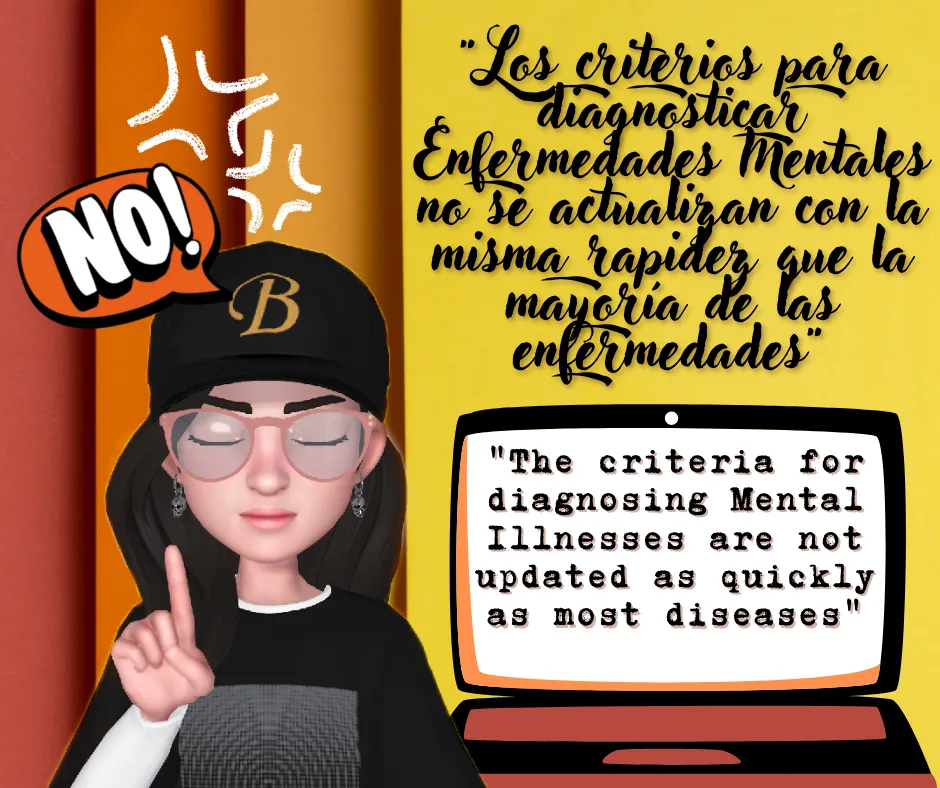

Este manual de Diagnóstico de Enfermedades Mentales se actualiza cada cierto tiempo, pero no es tan frecuente como otros criterios o Gold Standard (forma como conocemos en medicina a los criterios diagnósticos más importantes) y es que la psiquiatría no avanza como otras ciencias, la psiquiatría es lenta porque se supone que la mente del ser humano no cambia tanto, ni tan rápidamente y además hacer experimentaciones de este tipo de enfermedades en seres humanos no siempre es ético.
Por ejemplo, el Gold Standard de la Diabetes. La Diabetes es una enfermedad que está en constante estudio, los parámetros de diagnóstico de esta enfermedad cambian casi anualmente, porque es una enfermedad que evoluciona demasiado al depender de tantos factores, sobre todo la alimentación y sabemos que cada día hay aditivos nuevos en el mercado, por lo que constantemente se está estudiando y debemos estar actualizados al respecto, por eso dicen que en la medicina nunca se deja de estudiar.
Pero, con las Enfermedades Mentales no sucede lo mismo, el cerebro humano no tiene esa capacidad de evolucionar tan rápidamente como los demás órganos, por ello no vamos a ver cambios anatómicos, bioquímicos y de las características sociales o emocionales de los seres humanos tan frecuentemente, por ende los parámetros deberían ser los mismos que conocemos desde hace unas cuantas décadas, de hecho, ese manual del que les hablo solo ha sido reformado 5 veces, actualmente usamos el DSM-V y fue creado en 1952 la primera versión.
Como notaras en 70 años solo ha habido 5 modificaciones de este manual de Diagnóstico de Enfermedades Mentales, mientras que, por ejemplo, la Diabetes y los criterios que usamos para su diagnóstico (Gold Standard) que son los de la ADA (American Diabetes Association) han sido modificados anualmente y la primera guía salió en el año 2010.
En pocas palabras: hemos tenido casi una decena de modificaciones de los diagnósticos de la Diabetes en solo 10 años, mientras que, para las Enfermedades Mentales, solo hemos tenido 5 en 70 años ¿increíble cierto?
This Diagnostic Manual of Mental Illness is updated from time to time, but it is not as frequent as other criteria or Gold Standard (as we know in medicine the most important diagnostic criteria) and psychiatry does not advance as other sciences, psychiatry is slow because it is assumed that the human mind does not change so much, or so quickly and also doing experiments of this type of disease in humans is not always ethical.
For example, the Gold Standard of Diabetes. Diabetes is a disease that is constantly under study, the diagnostic parameters of this disease change almost annually, because it is a disease that evolves too much to depend on so many factors, especially food and we know that every day there are new additives on the market, so it is constantly being studied and we must be updated about it, so they say that in medicine never stop studying.
But the same does not happen with Mental Illnesses, the human brain does not have the ability to evolve as quickly as other organs, so we will not see anatomical, biochemical and social or emotional changes of human beings so often, therefore the parameters should be the same as we have known for a few decades, in fact, that manual I'm talking about has only been reformed 5 times, we currently use the DSM-V and was created in 1952 the first version.
As you will notice in 70 years there have only been 5 modifications of this Diagnostic Manual of Mental Illnesses, while, for example, Diabetes and the criteria we use for its diagnosis (Gold Standard) which are those of the ADA (American Diabetes Association) have been modified annually and the first guide came out in 2010.
In short: we have had almost a dozen modifications of the diagnoses of Diabetes in only 10 years, while, for Mental Illnesses, we have only had 5 in 70 years, unbelievable right?

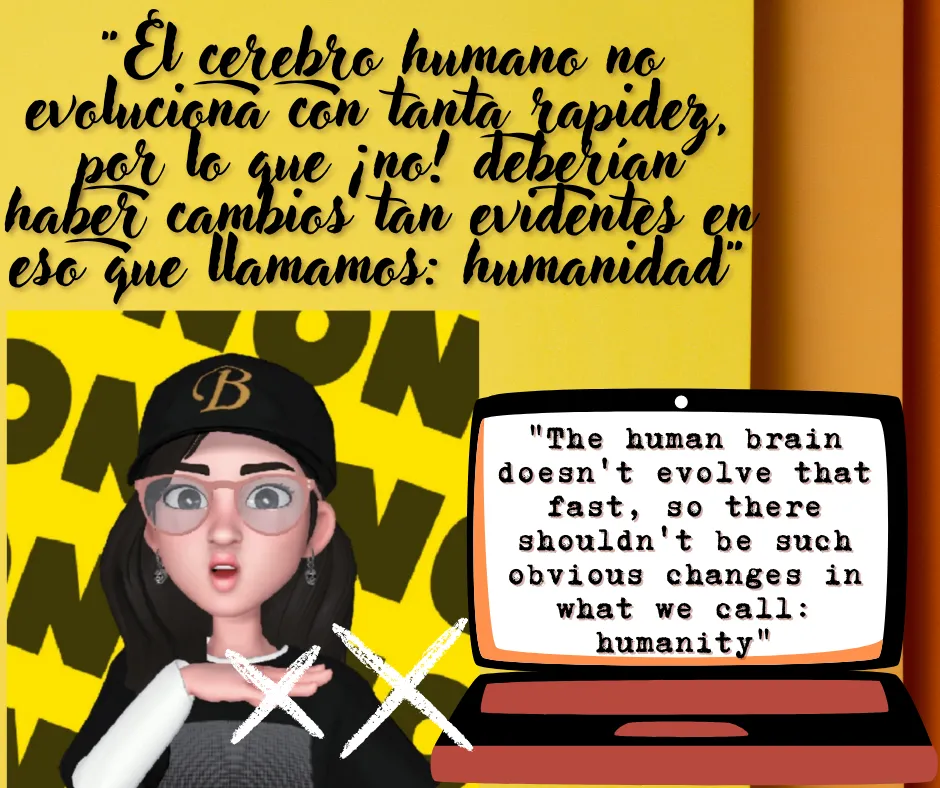

La razón de eso es por lo que les acabo de decir un poco más arriba, estudiar la mente humana es muy complicado y no evoluciona con tanta facilidad, sin embargo, justamente esto es lo que me tiene pensando ¿será que el ser humano ha escalado en su evolución y ahora mismo es "normal" tener todas esas características que anteriormente considerábamos patológicas?
Es que la cantidad de personas pensando exactamente igual es demasiada, es como si fuera la nueva normalidad, es decir lo más frecuente, si así sería como lo estoy pensando, de verdad es muy lamentable que el ser humano esté evolucionando en ese sentido, hacia el egoísmo y el pensar sólo en sí mismo.
Les hago una pregunta ¿cómo nos vamos a mantener en un futuro como especie humana si estamos tan cargados de falta de empatía, insensibilidad, falta de tolerancia y egoísmo hacia los otros que son iguales a nosotros?,¿van a poder en el futuro convivir los seres humanos unos con otros? Mi humilde opinión es que: ¡Lo dudo!
Ahora mismo siento que la raza humana está evolucionando en el peor de los sentidos, en el sentido de la autodestrucción como especie. Mientras vemos animales que se ayudan entre sí aun cuando son de diferentes especies y hasta plantas que viven en simbiosis con parásitos y hongos, vemos lo contrario en los seres humanos porque cada día se aleja más de los que son incluso iguales a él ¡un completo desastre!
The reason for that is because of what I just told you a little above, studying the human mind is very complicated and it does not evolve so easily, however, this is exactly what has me thinking, could it be that the human being has climbed in its evolution and now it is "normal" to have all those characteristics that we previously considered pathological?
It is that the amount of people thinking exactly the same is too much, it is as if it were the new normality, that is to say the most frequent, if this is how I am thinking about it, it is really very unfortunate that the human being is evolving in this sense, towards selfishness and thinking only about himself.
I ask you a question, how are we going to maintain ourselves in the future as a human species if we are so full of lack of empathy, insensitivity, lack of tolerance and selfishness towards others who are equal to us, will human beings be able to coexist with each other in the future? My humble opinion is: I doubt it!
Right now I feel that the human race is evolving in the worst way, in the sense of self-destruction as a species. While we see animals helping each other even when they are of different species and even plants living in symbiosis with parasites and fungi, we see the opposite in humans because every day it is moving further away from those who are even equal to it, a complete disaster!

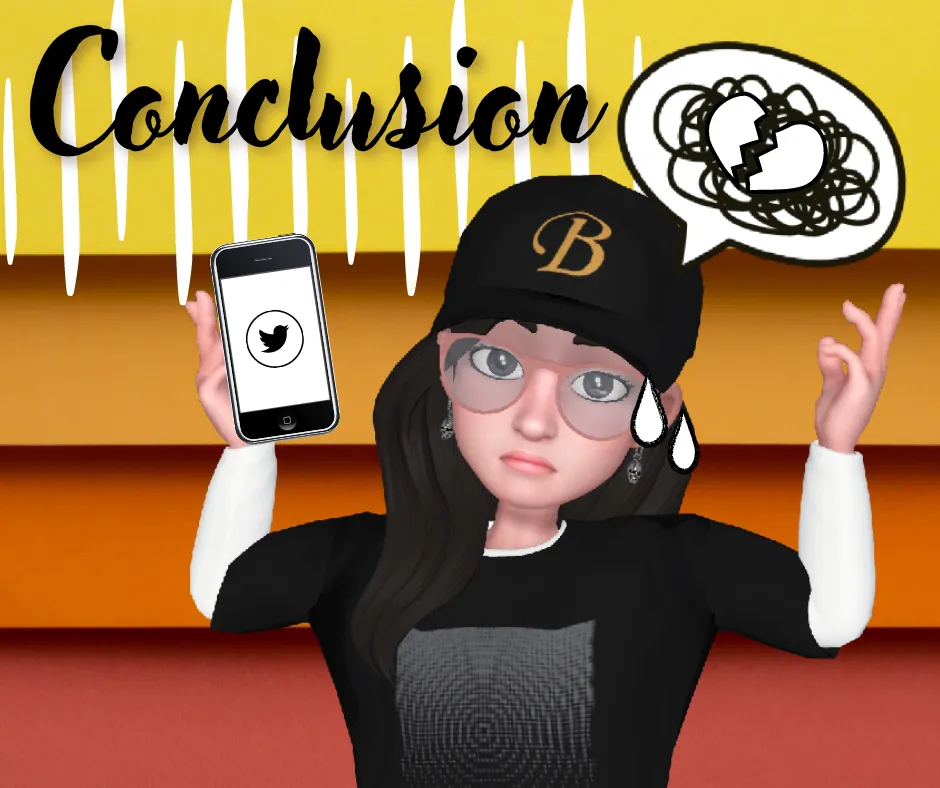

Concluyo mi reflexión, con que ahora mismo me siento confundida con lo que aprendí sobre la mente humana, no sé qué es lo que se va a considerar una enfermedad mental en el futuro ni siquiera mediato y menos el tardío, porque no es como que todos van a ameritar un tratamiento farmacológico si todos piensan igual.
Además, no van a sentir que les afecta su vida porque cada quien va a pensar en sí mismo, no les va afectar la vida del entorno, así que ese criterio principal que les dije al comienzo para saber cuándo alguien necesita ayuda y tiene una Enfermedad Mental ¡ya no existirá!
Al final los que pensamos de la forma antigua con todos esos aspectos benevolentes sobre los demás que incluía la palabra "humanidad" vamos a ser los "anormales" o poco frecuentes y por consiguiente los que necesitaremos tratamiento tanto farmacológico como terapia psicológica ¡que desastre lo que le espera a la humanidad!
Me despido después de esta reflexión con tristeza amigos, lo que nos espera no va a ser fácil si seguimos por el camino que vamos como seres humanos.
I conclude my reflection with the fact that right now I feel confused with what I have learned about the human mind, I do not know what is going to be considered a mental illness in the future, not even in the medium future and even less in the late future, because it is not like everyone is going to deserve a pharmacological treatment if they all think the same way.
Besides, they will not feel that their life will be affected because everyone will think about themselves, they will not be affected by the life around them, so that main criterion that I mentioned at the beginning to know when someone needs help and has a Mental Illness will no longer exist!
In the end those of us who think in the old way with all those benevolent aspects about others that included the word "humanity" will be the "abnormal" or rare ones and therefore those who will need both pharmacological treatment and psychological therapy, what a disaster awaits humanity!
I say goodbye after this reflection with sadness friends, what awaits us is not going to be easy if we continue the way we are going as human beings.

THANKS FOR STOPPING BY AND READING!

Todas las imágenes fueron creadas por @liveofdalla usando Canvas y Picsart con recursos gratuitos de ambas Apps.
(Eng) All images were created by @liveofdalla using Canvas and Picsart with free resources from both Apps.
DeepL
